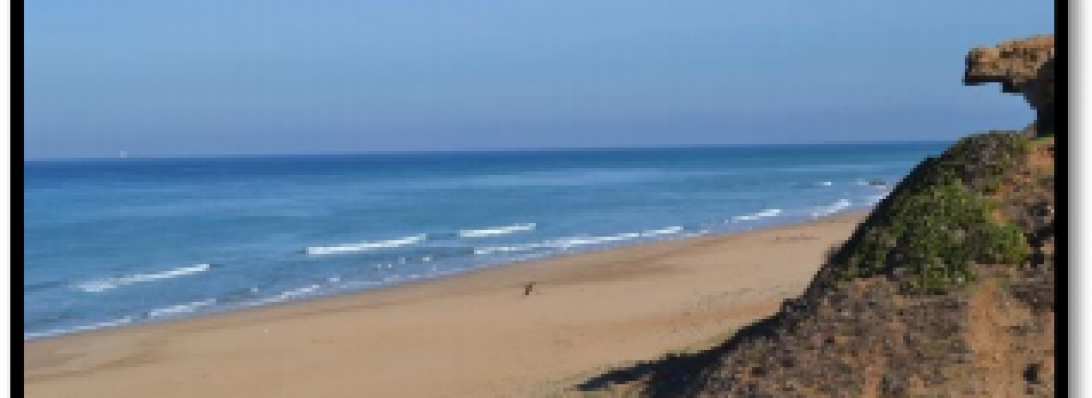Denise and I got a taste of reality Saturday when we made a shopping excursion to Marjane, Morocco’s closest approximation to Wal-Mart. Fes has two Marjanes now; the one we visited opened last year and is located five or six miles out of town in one of the more upscale residential areas. The demand for parking, I suppose, precludes the location of these large multi-service retail stores in the extremely congested parts of the city near the center.
We got there by obtaining the services of a Petit Taxi. We managed that with little difficulty and the fare for such a trip is quite reasonable, about two dollars for the four miles or so we traveled from the apartment. Nonetheless, the distance from the primary residential areas for a majority of the population prevents them from taking advantage of the more modest prices available. In fact, only a very small minority has the discretionary means to afford transportation by taxi just for convenience. They tend to shop for food almost exclusively in the small neighborhood groceries called “hanutes” located within a few minutes walking distance of practically every home and apartment in town. Moreover, most families of middle class or below purchase only enough provisions for each day. Buying in bulk in order to save money is a scheme at odds with both their economic situation and cultural practice. Still, Marjane has plenty of patrons and is quite a successful enterpirse, but shopping there is certainly not an option for everyone.
The reality Denise and I confronted concerns our freedom of mobility, our usual practice of going where we want to exactly when we want to. Though we had no trouble getting to the store, quite the opposite occurred when we finished our shopping. The week’s supplies we purchased filed four or five “micas’, the plastic bags we can opt for at home in response to the paper or plastic question. Here, it’s plastic or plastic!
We then made out way out to the spot in the parking lot where taxis are allegedly available. We waited about ten minutes, never saw one, and decided to walk the quarter mile or so up to the main highway that leads back toward town. According to Denise’s precision time-keeping, we had to wait another twelve minutes before actually succeeding in flagging down a taxi with two available places.
When we got back to the apartment, Denise commented on the difference betweent that rather routine chore and how we would have handled it in suburban Birmingham. We would have walked to the garage and immediately driven to the store in the privacy of our own automobile. We would have made our purchases, rolled the buggy to the car, put the goods in the back, and immediately driven home. No waiting, no requesting, no hoping, no undue stress in order to complete the task.
Maybe 10 or 15 percent of the families here in Fes have options similar to the ones we enjoy in Bluff Park. But our experience Saturday is much more the norm here and reminded us of how much we take for granted in our daily life style. We have had meals in five different homes here in Fes. Four of the five families involved do not even own a car. Six of the adults and four university students with whom we have shared meals are dependent on buses or taxis to get back and forth to work or school. All of them spend a lot of time waiting, and endure a lot of discomfort if using the buses because they are always crowded The freedom we enjoy to plan and manage our time schedule is a blessing; the folks we know here have a much more difficult task.
Perhaps that’s another lesson we learn from traveling: we are very fortunate to be as mobile and free as we are. Being involved in the lives of others in a very personal way here enables us to empathize more realistically with the togher demands that daily life imposes on them.
Fred
